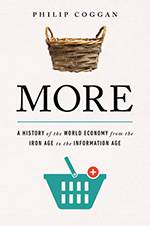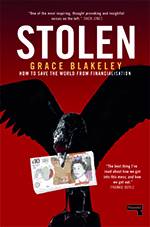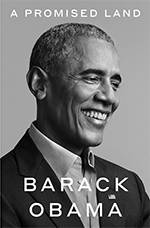OnPoint Subscriber Exclusive

John Andrews
Says More…
This week in Say More, PS talks with John Andrews, a former editor and foreign correspondent for The Economist, and the author of The World in Conflict: Understanding the World’s Troublespots.
Project Syndicate: Many observers have mined the history of prewar Europe for insights into the rise of anti-democratic political forces today. You recently highlighted a few “dispiriting lessons” from that period, including the potentially devastating consequences of “political leaders’ readiness to sacrifice their professed principles.” We see that readiness today in the US Republican Party’s embrace of former President Donald Trump, and arguably in British Prime Minister Boris Johnson’s consolidation of control over the Conservative Party. What can be done to arrest these parties’ slide toward illiberalism?
John Andrews: There is no quick or easy answer. “Strongman” politicians everywhere mislead voters by offering simplistic solutions to complex issues. Examples include Filipino President Rodrigo Duterte’s violent “war on drugs” and Turkish President Recep Tayyip Erdoğan’s ludicrous insistence that low interest rates reduce inflation.
The United States faces a combination of problems. Election campaigns are exorbitantly expensive. Cable television and talk radio have abandoned even the pretense of objectivity. And, to get a party’s nomination, a candidate for political office has to appeal to its activists – in other words, to its extremists.
Andrews recommends
We ask all our Say More contributors to tell our readers about a few books that have impressed them recently. Here are Andrews's picks:
-

More: A History of the World Economy from the Iron Age to the Information Age
by Philip Coggan
Philip Coggan’s history of commerce and trade is ambitious in its scope and quite brilliant in its achievement. From the earliest evidence of long-distance trade to today’s Sino-American tariff wars, Coggan explores how humankind has become increasingly prosperous over the last 10,000 years, despite persistent disease, repeated economic depressions, and relentless war. I might be biased – after all, Coggan writes for The Economist – but I would place this book in the ranks of Yuval Noah Harari’s best-selling Sapiens.
-

Stolen: How to Save the World from Financialisation
by Grace Blakeley
Grace Blakeley is a young economist who stands firmly within the Jeremy Corbyn wing of Britain’s Labour Party. But her cogent analysis of economic history from the Bretton Woods Conference of 1944 to the global financial crisis of 2008 (including its aftermath), is impeccably researched. Personally, I find her recommendations naive, but her challenge to conventional notions of what is politically and economically feasible should at least make us examine our own prejudices.
-

A Promised Land: The Presidential Memoirs, Volume 1
by Barack Obama
Obama’s memoir of his first term in office lives up to the hype. We knew from his previous books that Obama is a gifted writer. But now we can also properly appreciate the gargantuan task of leading the world’s most powerful country. Obama writes with real candor about the challenges of getting elected only to inherit a global financial crisis and the “forever wars” in Iraq and Afghanistan. I’m genuinely impatient for the promised second volume.
From the PS Archive
In “NATO After Brexit,” Andrews assesses the views of Wolfgang Ischinger, Yuriko Koike, Javier Solana, and others on the three main challenges the Alliance faces. Read more.
In “The Crown Prince’s New Clothes,” Andrews wonders whether MBS has bitten off more than he can chew. Read more.
Around the web
In a TEDx Talk, Andrews examines the evolution of conflict – and shows why war will always be a part of life. Watch the video.